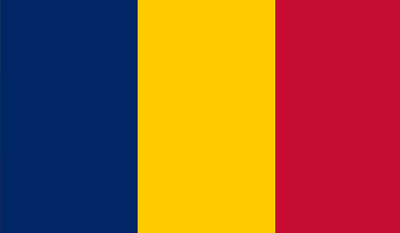Day 23
Chad
Praise Points
The persistence of local Christian communities that sustain faith through hardship — “And the churches were strengthened in the faith and increased in numbers daily.” — Acts 16:5.
Local churches serving their communities with schools and clinics, showing practical love — “Let each of you look not only to his own interests, but also to the interests of others.” — Philippians 2:4.
Passing memory and story between generations (oral and communal heritage) that can transmit faith and values — “We will not hide them from their children; we will tell to the coming generation the glorious deeds of the LORD.” — Psalm 78:4.
Prayer Points
Political instability, conflict, and violence tear families and communities apart — “What causes quarrels and what causes fights among you? Is it not this, that your passions are at war within you?” — James 4:1.
Poverty, lack of opportunity, and economic desperation make faith secondary to survival or push youth to migrate — “But those who desire to be rich fall into temptation, into many senseless and harmful desires that plunge people into ruin and destruction.” — 1 Timothy 6:9.
False teaching, fragmentation, and the rise of short-term movements that weaken sound doctrine and communal accountability — “But false prophets also arose among the people, just as there will be false teachers among you, who will secretly bring in destructive heresies.” — 2 Peter 2:1.
A Call to Salvation
Advocate for justice, protection of vulnerable people, and religious freedom — Christians should organize to influence policy. Hence, churches and families are safe, and children can access education. “He has told you, O man, what is good; and what does the LORD require of you but to do justice, and to love kindness, and to walk humbly with your God?” — Micah 6:8.
Invest in education, apprenticeships, and youth discipleship programs — provide alternatives to migration and strengthen vocational hope tied to Christian formation. “Fathers, do not provoke your children to anger, but bring them up in the discipline and instruction of the Lord.” — Ephesians 6:4.
Model servant leadership and build cross-denominational partnerships — serve public needs, model reconciliation, and create shared institutions (schools, hospitals, disaster response) that demonstrate the gospel in action. “Do nothing from selfish ambition or conceit, but in humility count others more significant than yourselves.” — Philippians 2:3.
Chad, a landlocked country at the crossroads of North and Central Africa, has a long history shaped by Saharan trade routes, Sahelian kingdoms, and successive waves of migration and conquest. In the 19th and 20th centuries, it came under French colonial rule and achieved independence in 1960; the post-independence era has been marked by repeated political upheaval, civil conflict, and regional interventions. Chad is culturally diverse: dozens of ethnic groups (such as the Sara, Zaghawa, Maba, and others) speak multiple languages and practice a mix of Muslim, Christian, and indigenous faiths. This diversity is visible in music, dress, oral literature, and subsistence patterns that range from Sahelian herding in the north to farming in the south.
Christianity in Chad
Christianity in Chad is a minority but significant presence, mainly concentrated in the southern regions where Roman Catholic and Protestant denominations have established churches, schools, and health clinics. Christian faith entered the area through a mix of early travelers, colonial-era mission societies, and later African and international evangelical movements. Churches have often worked alongside humanitarian organizations to provide education, medical care, and social services, and they form an essential part of civil society in many communities.
Christianity in Chad grew through the activity of missionary societies and local leaders over many decades. Catholic missionary orders and French colonial-era mission societies were influential in establishing parishes, schools, and hospitals in the south. Protestant and evangelical mission groups from Africa, Europe, and the Americas later contributed to church planting, Bible translation, and youth ministries. Alongside foreign missionaries, many Chadian pastors, catechists, and local Christian leaders played decisive roles by rooting the faith into local languages and customs, training new leaders, and establishing indigenous churches.
Denominational fragmentation (Catholic, mainline Protestant, Pentecostal/charismatic, and independent churches each running separate networks), ethnic and language divisions that map onto congregations, competition for scarce donor resources, and differing theological priorities (social justice vs. prosperity vs. charismatic renewal). External pressures — political instability, migration, and the influence of foreign funding that sometimes ties congregations to outside agendas — also create rivalries and short-term thinking rather than long-term Kingdom building.


